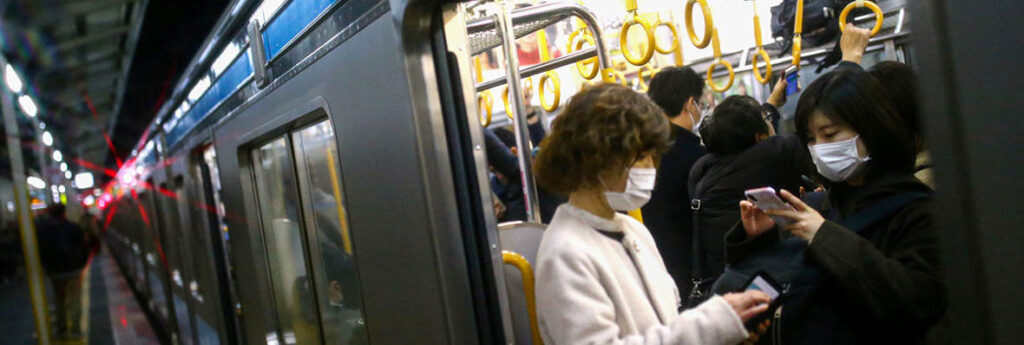Japan’s number of reported coronavirus infections hit a record high Thursday, and the prime minister urged maximum caution but stopped short of calling for restrictions on travel or business.
The Health Ministry reported 2,179 new cases, the first time Japan has seen more than 2,000 new daily cases since the pandemic began. The previous high for new cases was 1,723 on Nov. 14.
Compared to many other countries, Japan has done well with its efforts to combat the virus, reporting 122,966 infections, with 1,922 deaths, since the pandemic began. But it has seen an uptick in cases recently, with record highs both nationally and in Tokyo, the country’s largest city.
Tokyo’s metropolitan government on Thursday reported 534 new cases, a record high, and raised its alert level to “red,” or highest on the scale of four. Tokyo’s previous record was 493 set Wednesday. Before that Tokyo’s numbers peaked in August during an earlier surge.
The nationwide spikes, especially in the populated capital region and Hokkaido in the north, are also alarming experts ahead of an upcoming three-day weekend and the winter holiday season of travelling and parties. They have called on officials to step up preventive measures.
Experts on Tokyo’s coronavirus panel called Thursday for officials to secure more beds for patients and hotel rooms for those with less-serious symptoms before infections further accelerate.
Prime Minister Yoshihide Suga told reporters Thursday that he has instructed relevant ministers to do their utmost to prevent the infections from escalating and he urged the thorough use of masks. But he said his government’s tourism and dining incentives will continue.
The “GoTo eat” dining campaign aimed at supporting the restaurant and tourism industry should be limited to groups of up to four people, Suga said. He also asked people to wear masks when dining, remove them only they put food in their mouths and immediately put them back on while talking quietly.
“I ask the people to quietly dine with mask,” Suga said. “I will start thoroughly doing that myself.”
Experts say the wide use of face masks and other common preventative measures, as well as cultural traditions that lack handshakes and kissing, might have helped keep the country’s caseload low.
Infections have gradually climbed back as the government tries to balance disease prevention and the economy without curbing business activity.
A top government panel expert, Shigeru Omi, told a parliamentary session Wednesday that infection “clusters” are now occurring in diverse situations, making preventive measures more challenging and would require scaling down of economic and social activity.
“It’s time to buckle up again,” Omi said.
Japan Medical Association President Toshio Nakagawa urged Tokyo residents to stay home over the weekend.
Economy Revitalization Minister Yasutoshi Nishimura told reporters late Wednesday that service industry groups are currently revising their safety guidelines to step up preventive measures at restaurants and bars where risks are deemed high.
Government officials are reluctant to scale back businesses at a time when the economy is still struggling. The resurgence could also complicate things as Tokyo prepares to host the Olympics next summer after a postponement due to the pandemic.
Japan declared a state of emergency in April and May, making nonbinding stay-at-home and business closure requests. The number of cases had levelled off thanks to the measure, even if many people still commuted, picnicked in the park and dined at restaurants that stayed open despite the requests.

